Avoid malicious sites and optimise your security features
Secure websites
However, there is no guarantee that the site, organisation or company and the person you are interacting with, is who you believe they are. Check the address bar to confirm their authenticity and to see if the URL is the same as the address you clicked or entered, as some fake websites redirect you to different links. Some sites can have an EVSSL. This means their site has been thoroughly checked and is declared safe.
Searching the internet
Here are a few extra precautions you can take when searching the internet:
- Use accurate search terms that are spelt correctly to ensure that you don’t unintentionally end up viewing offensive material
- Some pages flag up as ‘potentially harmful‘, you are then given a choice whether to continue or leave. Unless you are sure the site is safe, always leave
- Install filtering software to protect you from offensive and illegal sites
- Use advanced search settings to filter out offensive and illegal content. Read the guide here on how to use ‘Advance Search’ on Google
Cookies
To ensure maximum security when using cookies, action the following:
- Ensure you have the latest version of your browser installed
- Always log out of accounts before closing a browser. Closing a browser without logging out doesn’t automatically log you out
- Turn on the cookie notifications in your browser settings as some sites don’t work if you disable cookies
- Some browsers allow you to choose whether you enable or disable cookies per site, allowing you to choose cookies for only the sites you trust
- Ensure you and your business have the latest antivirus updates
- Use a cookie management program to delete old cookies. You can also do this in your browser settings to delete any unwanted cookies
- Under UK law, websites must ask your permission to use cookies. You can say no
Update your browser
- More compatible – new technology is invented every day. Browsers have to keep up with this, so with every browser update comes new features
- Updates can fix issues the previous version had. If you don’t update your browser, you run the risk of security issues like hacking, preventing you from maintaining safe internet use. These updates protect your computer from things like viruses, scams, malware etc
- New versions of browsers often come with more settings you can customise making internet searches more bespoke to you, improving the usability
- Updates can improve the overall speed of the browser. You don’t want to be stuck on an old version taking forever to load
- The best part of updating your browser – it’s free!
Copyright Infringement
The internet of things
- IP cameras for security and baby monitors
- Central heating controllers
- TVs
- Multi-room entertainment devices
- ‘Smart’ electric goods
- Cars
All of these objects use the internet for a status or performance to increase efficiency in real-time and still require safe internet use. These all allow users to monitor and manage some or all the functions remotely from a mobile or some other device. Internet of Things is becoming more popular in Manufacturing Facilities, Power Generation Plants, Energy Grids, Healthcare Facilities and Transportation systems, with 24/7 connection improving work life and productivity.
Despite the amazing advantages modern technology has, there are always risks. These are some of the risks you could be making yourself and your business vulnerable to:
- Unauthorised access and hacking
- Home and business IP CCTV camera hacking – cybercriminals spy on you or your business and sometimes stream the footage online exposing potentially confidential data
You can help prevent the likeliness of this by changing the default password for the router, securing the WiFi to WPA2, not revealing the access code to unauthorised people. Also read the instructions on how to set up the WiFi securely. If this doesn’t work or you require help, give us a call on 0800 680 00 88.
Take Action
Things to watch out for
- Sites that are ‘Not Secure’ without the padlock symbol in the address bar
- Downloadable content- do you have the rights to download and use. Also, is it safe?
- Misspellings and grammatical mistakes are a big giveaway
- Websites asking you for a lot of personal information in full
Protect yourself and your business
- Check the address, phone number and contact details on the website. If you are unsure, verify how legitimate the website is by making contact with one of the provided methods
- Roll the mouse over any clickable links. DO NOT CLICK THEM. If you hover over them the true destination should be revealed
- Check the address bar to see if it is the same address that you entered or if you have been redirected
- Get professional advice before making any investments online
- Don’t invest in any recruitment schemes where quick, fast money is promised, or an advanced payment is requested
- Never click links in any emails you receive that appear suspicious
Report it!
- Change the passwords to any accounts that could be involved
- Phone us immediately on 0800 680 00 88 and report it to Action Fraud
